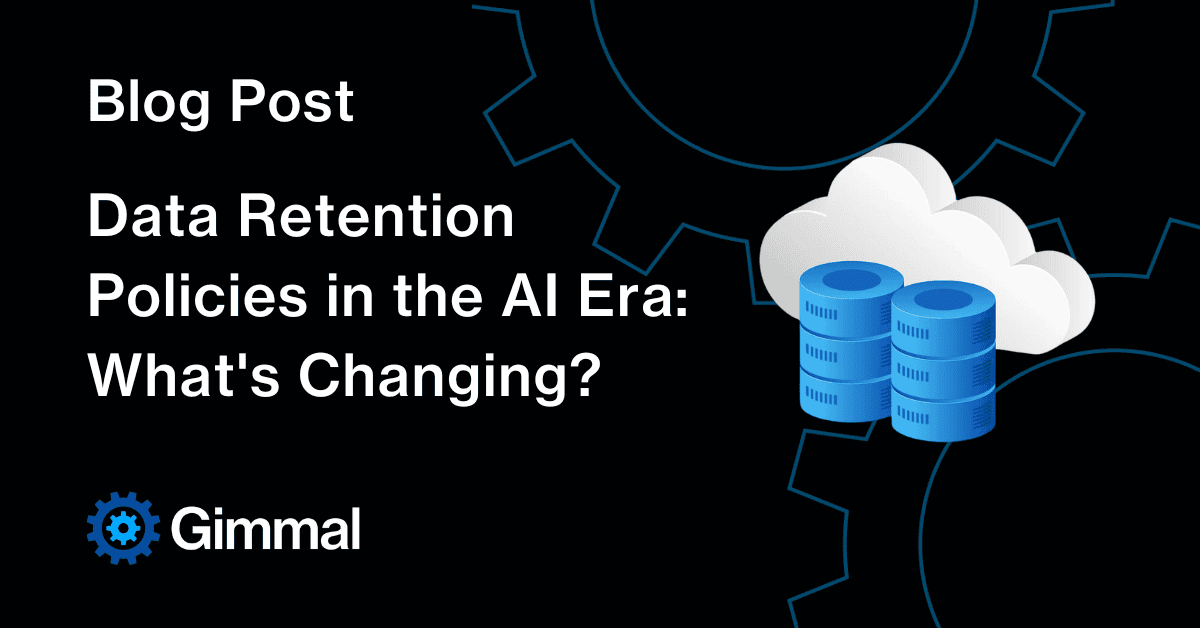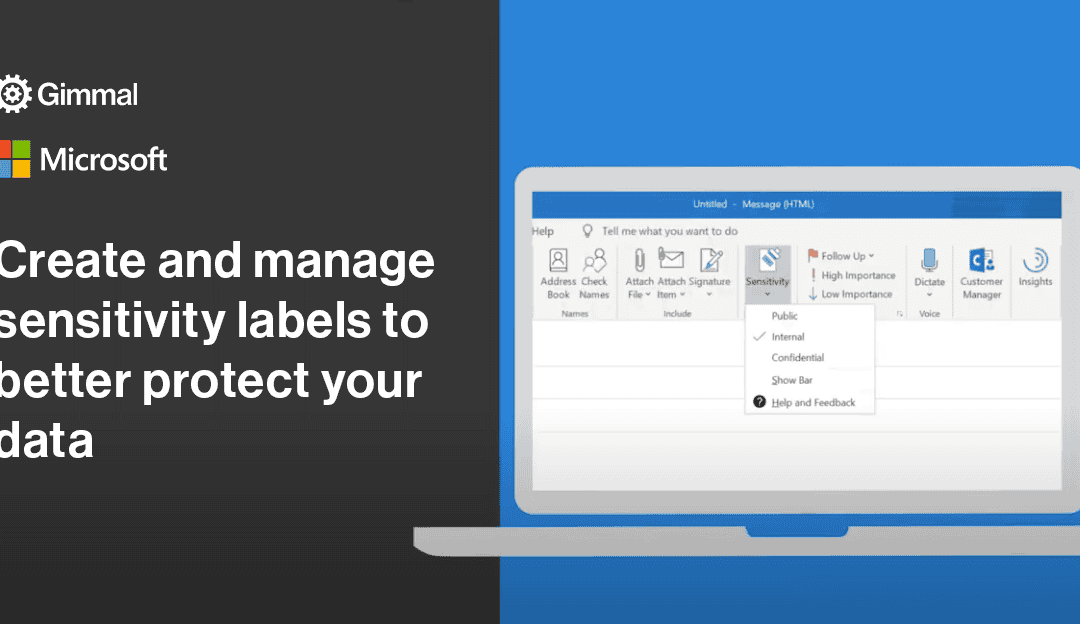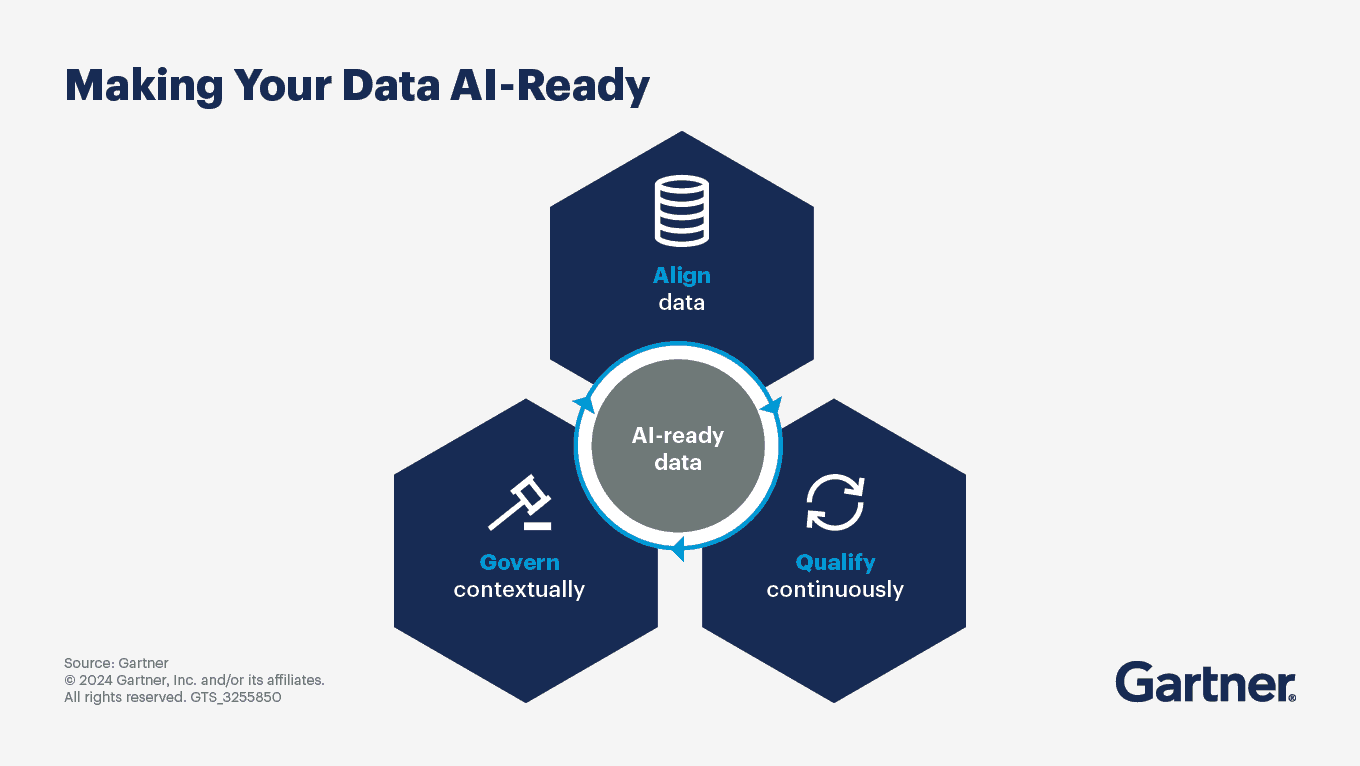Data Retention Policies in the AI Era: What’s Changing?

Written by Gimmal Product Marketing
The landscape of data governance is undergoing a seismic shift as artificial intelligence becomes increasingly central to business operations. Organizations are now grappling with unprecedented challenges in data retention, forcing a complete reimagining of traditional policies and practices. At Gimmal, we understand this evolution isn’t just about storing more data—it’s about storing it smarter, longer, and with greater purpose.

The New Data Paradigm
The advent of AI has transformed data from a mere record-keeping necessity into a strategic asset. According to IDC’s Global DataSphere, the amount of data created and replicated reached 64.2 zettabytes in 2023, with AI-related data accounting for an increasingly significant portion. Gimmal’s information governance solutions are specifically designed to help organizations navigate this explosive growth while maintaining compliance and efficiency.
Key Drivers of Change
1. AI Training Requirements
Modern AI systems require vast amounts of historical data for training and validation. Gimmal’s advanced records management platform helps organizations:
- Maintain high-quality historical data for AI model training
- Implement sophisticated version control for training datasets
- Balance storage optimization with data accessibility
- Automate retention schedules while preserving valuable training data
2. Regulatory Evolution
The regulatory landscape has become increasingly complex with the introduction of AI-specific legislation. Gimmal’s compliance solutions help organizations navigate:
- GDPR and CCPA requirements for data minimization
- AI Act requirements in the EU
- Industry-specific regulations
- Cross-border data transfer restrictions
- Model explainability requirements
3. Technical Considerations
Gimmal’s comprehensive suite of solutions addresses modern technical requirements through:
- Seamless integration with existing enterprise systems
- Support for distributed storage architectures
- Cloud-native functionality
- Standardized data management across platforms
Implementing Modern Data Retention Strategies
Automated Classification
Gimmal’s classification engine automatically categorizes data based on:
- Regulatory requirements and compliance needs
- Business value and operational importance
- Privacy sensitivity levels
- Storage cost considerations
Lifecycle Management
Our end-to-end information governance solutions address the entire data lifecycle:
- Automated data capture and classification
- Policy-driven storage and maintenance
- Quick archival and retrieval
- Secure deletion with comprehensive audit trails
- AI-ready data management
Risk Mitigation and Compliance Monitoring
Gimmal’s solutions are designed to help organizations proactively reduce risk and ensure compliance:
- Automated application of retention policies to meet regulatory requirements
- Identification and protection of sensitive or private information (e.g., PII, PHI)
- Comprehensive reporting and auditing tools for compliance monitoring
- Reduced legal risks through defensible disposition of expired or unnecessary data
- Simplified eDiscovery processes for regulatory and legal needs
Best Practices for the AI Era
Implement Tiered Retention
Not all data is equal. Employ varying retention periods and storage levels to prevent unnecessary overhead.
1. Archive critical records in Gimmal Records with longer retention schedules
2. Apply RIOT data remediation to purge unused or obsolete files
Establish Clear Governance
Strong governance structures ensure consistent application of retention policies:
1. Define roles and responsibilities around data handling
2. Utilize Gimmal’s records management functionality to set and enforce retention schedules
3. Integrate Gimmal Discover for eDiscovery and litigation holds to address regulatory requirements
Automate Where Possible
Automation reduces manual errors and improves efficiency:
1. Leverage triggers in Gimmal Records to move records from active to archival status
2. Schedule RIOT Data Remediation tasks to keep systems clutter-free
3. Employ Sensitive Data Assessment to identify potential compliance risks quickly
Achieving AI Readiness with Gimmal
Audit Current Practices
Before updating policies, organizations need an honest appraisal of existing data handling:
1. Identify outdated retention schedules and neglected repositories
2. Catalog physical and electronic assets through Gimmal’s solutions
3. Run RIOT data analysis to locate unnecessary data
Develop a Roadmap
Charting a path forward aligns expectations and resources:
1. Set clear, measurable goals for retention improvements
2. Define roles and responsibilities for policy enforcement
3. Choose appropriate Gimmal solutions for the scope and nature of your data
Monitor and Adjust
Once your new policies are in place, continuous monitoring ensures they remain effective:
1. Track compliance via Gimmal Records
2. Audit potential risk areas with Sensitive Data Assessment
3. Refine storage tiers and disposal schedules based on usage patterns
Conclusion
In this new era defined by AI and ever-evolving data regulations, retaining information is much more than a compliance exercise; it’s a critical and continuous process that underpins operational success and future readiness. Rather than simply storing everything, organizations should develop dynamic, lifecycle-based policies that account for the unique needs of AI model training, stringent regulatory demands, and overall risk management.
By adopting a comprehensive suite of information governance solutions—like those provided by Gimmal—businesses can consolidate multiple data silos, classify and protect sensitive information, and align retention periods with organizational objectives. The ability to locate, access, and defensibly dispose of data when it’s no longer needed is a key differentiator for enterprises that refuse to let their data assets become liabilities.
Looking ahead, flexible and forward-thinking retention practices will help organizations thrive in a rapidly changing environment, enabling them to harness AI-driven insights responsibly while remaining resilient against emerging threats and compliance shifts. If you’re ready to reassess your strategy and streamline governance, now is the time to take stock of your data assets, define clear objectives, and chart a path toward sustainable data management.
Ready to Reassess Your Strategy and Streamline Governance?
Get started by filling out the form below, and let us help you leverage your existing infrastructure with minimal disruption. Whether you’re looking for ease of use, a single platform solution, or guidance on information governance, we’re here to assist.
Related Content

Podcasts
Podcasts Expert Interviews and Best Practices for Modern Information Governance 23 SEPT Navigating AI and Information Governance Part II – Insights from Gimmal & Office Labs Jason Coggins (Gimmal, UK & Europe) and Mike Nicholas (Office Labs) sit down for a...
Gimmal and Morae: A Game-Changing Partnership in Information Governance
Gimmal and Morae: A Game-Changing Partnership in Information Governance Aug 20, 2025 The information governance (InfoGov) landscape is evolving at a rapid pace, and the recent acquisition of Gimmal by Morae marks a pivotal moment for our industry. In a recent episode...
Navigating AI and Information Governance – Insights from Gimmal & OfficeLabs
Navigating AI and Information Governance – Insights from Gimmal & OfficeLabs Jul 8, 2025 In a recent episode of the Gimmal Podcast, Jason Coggins (Gimmal, UK & Europe) and Graham Bidwell (OfficeLabs) sat down for a deep dive into the fast-evolving worlds of...
Stop Hoarding: Data Retention & Deletion Imperatives for Risk Mitigation
Stop Hoarding: Data Retention & Deletion Imperatives for Risk Mitigation Jun 11, 2025 At Gimmal, our mission is to help organizations effectively manage information, reduce risk, and ensure compliance in an ever-evolving regulatory landscape. In a recent webinar,...

Gimmal Extends Microsoft Purview Information Protection Solution for Enhanced Sensitive Data Labeling and Governance
Thursday, June 20, 2024 – HOUSTON, TX – Gimmal, the market’s only end-to-end information governance platform, announced today the launch of their Microsoft Purview Sensitivity Labels solution to extend and enhance sensitive data classification for unstructured...

